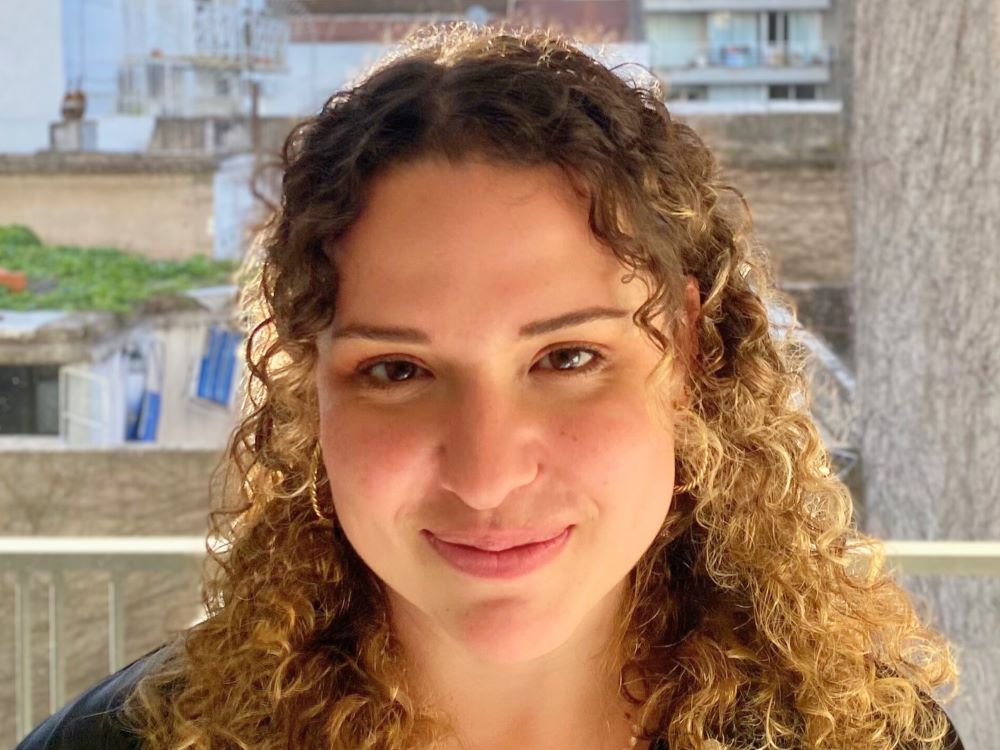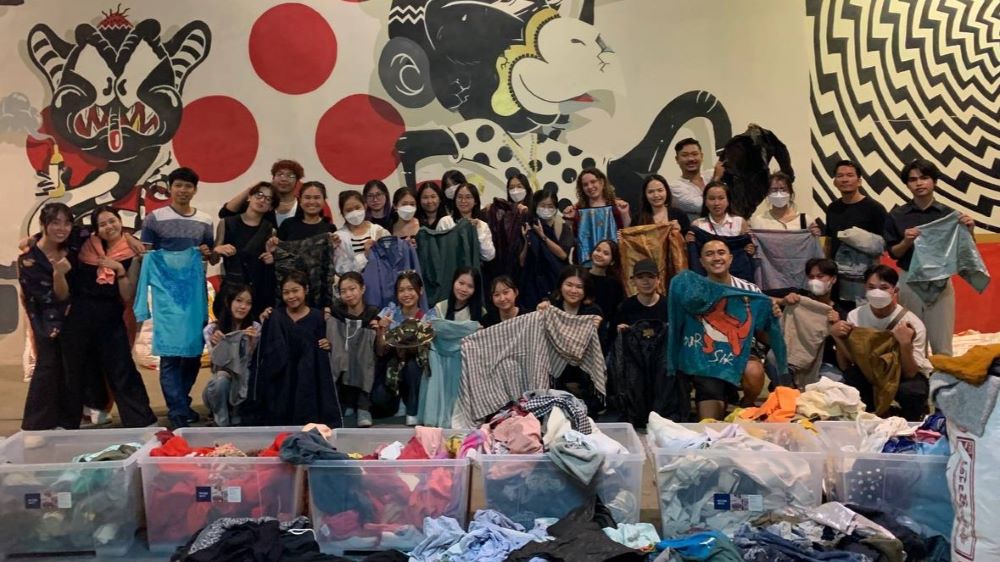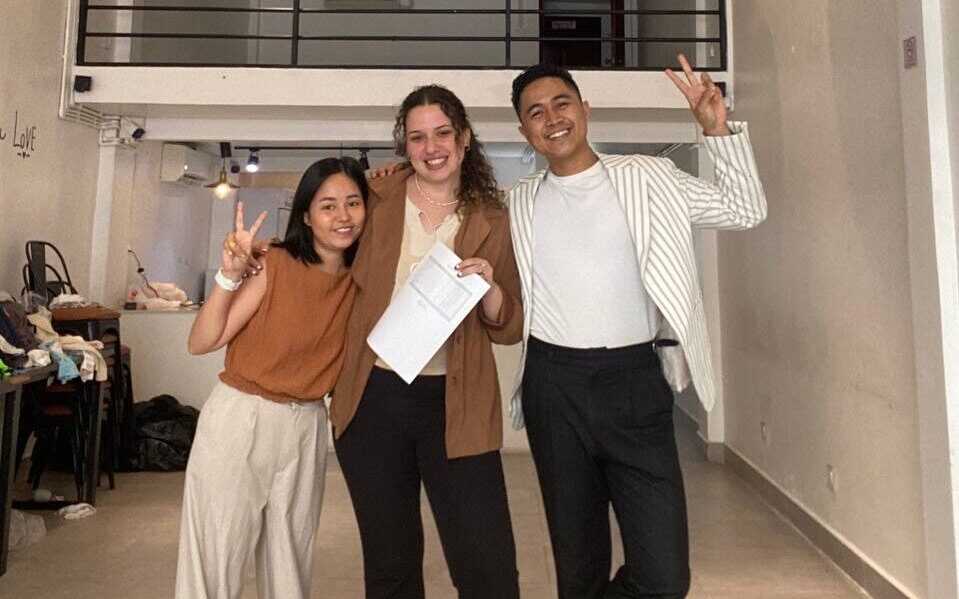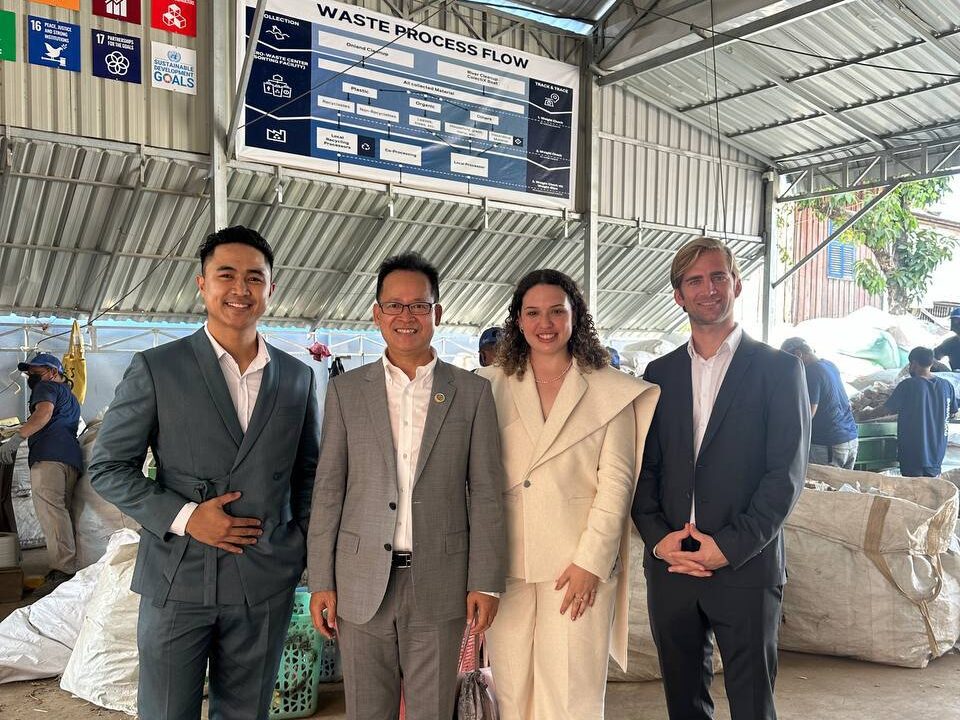Transforming Textile Waste into Sustainable Fashion
Alyssa Erin Kardos Loera
Social Entrepreneur, Sustainability Advocate, and Supporter of the Arts
Fulbright English Teaching Assistant to Cambodia

Alyssa Kardos Loera founded Re-Made in Cambodia while serving as a Fulbright English Teaching Assistant in Cambodia. The organization’s mission is to transform river waste into sustainable fashion by collecting and sorting clothing that pollutes local rivers and recycling the textiles.

Growing up, Kardos Loera became interested in global health as a way to address challenges and inequities. Her Fulbright year combined these interests with her deep-seated value of education. Her mother’s family immigrated from Jalisco, Mexico for better educational and economic opportunities, and her mother and aunts all became teachers themselves. On visits to her family in Mexico she volunteered at a shelter for women and children which gave her a great desire to “correct health inequity” through her own undergraduate education. At Georgetown University, she studied global health while also pursuing her interest in the arts, working at the Laboratory for Global Performance and Politics.
After graduating from Georgetown, Kardos Loera says the Fulbright ETA Program “became the perfect platform to unite these two halves of my identity,” art and global health, and led to a growing interest in protecting the environment. She set out to integrate arts into English teaching and showcase the remarkable work of local artists as part of her Fulbright community engagement. While teaching in a public high school, she connected to Khmer youth and the young adult community who were excited by sustainability. She became acutely aware of “the lack of representation for Cambodian fashion designers both within Cambodia and on the global runway.”
Young adults in the Khmer community were eager to participate in the fashion industry as both consumers and aspiring designers. Kardos Loera worked with them to organize an upcycled fashion show and photo exhibition that celebrated Cambodian arts, engaged local designers, musicians, poets, and photographers, and featured a guest speaker from the U.S. Embassy.
Upon completing her Fulbright, she remained determined to address the “detrimental impact of large multinational companies on Cambodia’s illegal logging and pollution.” With an IIE Centennial Fellowship, she returned to Cambodia to establish an upcycling studio that uses local weaving methods.

A few months in, Kardos Loera and her co-founder, director of business development Jamie Raine, are expanding the organization’s scope. They are partnering with the German organization Everwave’s Cambodia clean-up project on a joint Zero Waste textile sorting center, and have teamed up with other partners such as Wildlife Conservation Society, River-Ocean Cleanup, and the Or Foundation to conduct valuable research on clothing waste in Cambodia’s waterways and create public events such as the Earth Day Festival 2023.
More than two thousand people attended the Earth Day Festival to learn about the environmental impact of the fashion industry. The festival featured a fashion show which supported thirty-one local designers who used hundreds of kilograms of upcycled textile waste in their clothing designs. The majority of the outfits were designed by young fashion design students from MaPa Fashion Design Academy, Limkokwing University and Raffles International College.
In February 2024, the Re-Made in Cambodia team joined Everwave in welcoming the Cambodian Minister of Environment and the German Ambassador to Cambodia to visit the project’s textile sorting facility and see its garbage collection boat in operation, and to discuss plans to expand into other regions.
Kardos Loera’s vision is “to develop a comprehensive understanding of the issue of textile waste in waterways, a deployable and scalable textile waste upcycling system, an empowered and creative workforce, and cross-cultural exchange surrounding Cambodian arts and climate issues.”
The cultural exchange facilitated by her Fulbright award provided invaluable opportunities to connect with community stakeholders who “continue to inspire and support” her project a year after she founded it as a Fulbrighter. After a Fulbright ETA, her “placement in a public high school and interactions with my students offered essential insights into the project’s intended audience. The dedication and enthusiasm of my students motivated me to establish connections within the Cambodian community across different socioeconomic backgrounds, leading me to learn Khmer.”
Kardos Loera says her Fulbright experience opened doors for her to dedicate herself to environmental protection and promoting local arts, and creating a career path through Re-Made In Cambodia in which she can “cement her legacy and evolve into an industry leader.”
According to Kardos Loera, “the people that Re-Made in Cambodia serves will be disproportionately affected by climate change if we don’t take action.” That is why she is committed to building a network of young leaders who can drive the necessary change to protect their shared community. Under her leadership, Re-Made in Cambodia is becoming a “groundbreaking sustainable fashion project that not only repurposes textile waste but also empowers Khmer youth, raises awareness of climate change and biodiversity loss, and champions Cambodian arts and innovation.”
